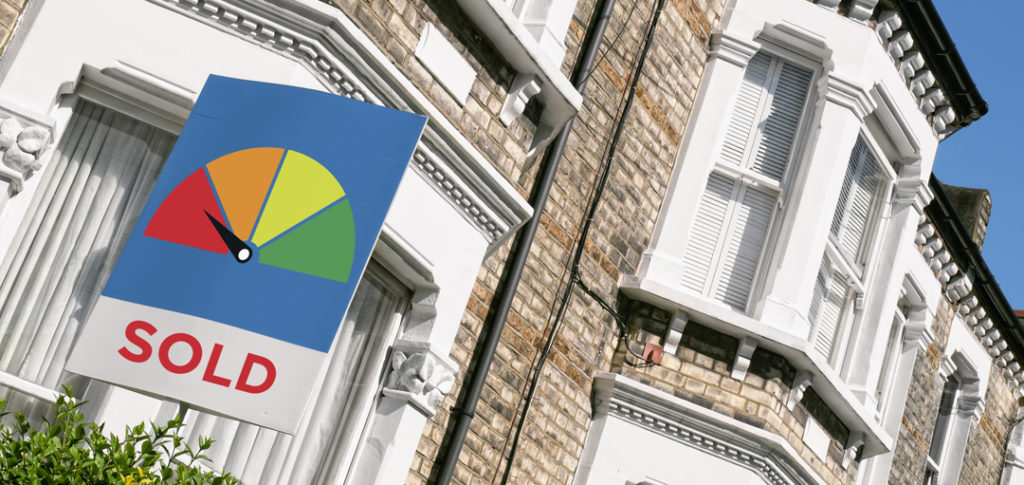When you apply for a mortgage, the lender tries to predict your reliability for making your repayments responsibly, based on the way you’ve acted in the past. To do this, they look at lots of different data that’s stored on your credit file. This might include how many applications for credit you’ve made recently, how much you owe, what credit products you’ve had and whether you paid them off on time.
If you have a bad credit score, mortgage lenders are less likely to lend to you, and you might have already been declined by a lender. But all is not lost. We help people every day who are worried they won’t be able to get a mortgage due to their bad credit situation – so don’t give up hope, we might be able to find a good mortgage deal that’s just right for you.
The advantages of using a broker
Using a broker like Clever Mortgages to help you get a bad credit mortgage could increase your chances, and this is partly because many of the mortgages available to people with bad credit are only available to brokers, and not directly to the public.
So, no matter how hard you try to apply to some lenders, they simply won’t lend to you unless you’re with a broker. We help customers with bad credit get the mortgage that’s right for them – and that’s because we know the lenders that are most likely to say ‘yes’, and to give the best rates.
When you enquire with us, we’ll ask about your income (you’ll need to have various documents, such as payslips and bank statements showing your salary going into your bank), all your outgoing details, and we’ll find out from you the total amount you want to borrow, as well as any deposit you have to put down. The bigger the deposit, usually means the better likelihood of getting a good deal.
Consider a joint application
If your partner has a more favourable credit score than you, it could be worth considering a joint mortgage, as then their credit history will be taken into account too.
Together you might have a bigger deposit and can both bring your salaries into the equation – making you a much more appealing prospect to lenders.
Some quick facts about taking out a joint mortgage:
- Most joint mortgages are taken out with two people on them, but some lenders will allow up to four.
- Everyone named on the mortgage is responsible for making sure repayments are made.
- Most joint mortgages are taken out by couples, but you can also take out a joint mortgage with a friend, or a family member, or even a business partner you want to share a new investment with.
Make sure you can afford your repayments
Bad credit mortgages will typically involve higher interest rates, which will mean repaying more money each month. So you’ll need to work out exactly what you’d be expected to pay and decide whether you can afford this as well as all your other outgoings.
We can help advise you on what your mortgage repayments might be.
Here’s what you’ll need to consider:
- Make sure you know exactly what your mortgage repayments will be. You can use our online mortgage calculator to give you an idea of what to expect.
- Write down and add up all of your monthly outgoings – petrol, food shopping, leisure, bills – and don’t forget to leave some extra each month, for the unexpected, e.g. your car needing some work, or something in the house going wrong.
- Consider what you’d do if your situation changed, make sure you think about a mortgage insurance plan that’s right for you.
Consider getting a guarantor
If you’re unable to get a mortgage because of bad credit, a family member or close friend, might be in a position, and willing, to be named as a guarantor. Getting a guarantor is a big step, as you and your guarantor will be tied to each other financially for the term of the mortgage. This can impact on both of your credit ratings.
The guarantor would often have to state they’ll secure the mortgage against their house (or another large asset), which means that if you defaulted on your mortgage payments the guarantor may be liable.
Getting a guarantor doesn’t remove the need to be credit checked, but it can mean that if you do have bad credit, you’ve got a better chance at getting a mortgage.
How to improve your credit score
A good credit score can help increase your chances of successfully applying for a mortgage – and get you a better rate too. Ways to improve your credit score include:
- Keep credit card balances low.
- Check for any mistakes on your credit file. Your credit score may be negatively affected if information about your financial history is incorrect on your file.
- Stay within agreed overdraft limits. Speak to your bank if you’d like an overdraft on a current account, but make sure you stick within the agreed limits.
- Make sure you’re on the electoral roll for your current address.
- Don’t make too many applications for loans or cards – too many applications, especially in a short space of time, can have a negative effect on your future score.



